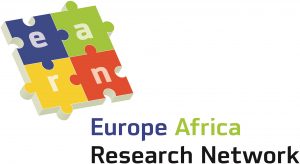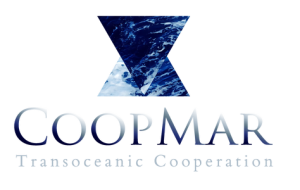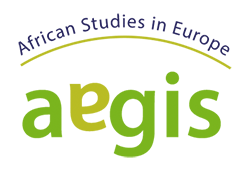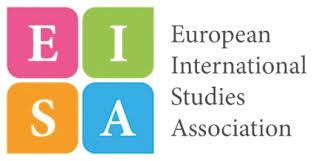| Rede | Investig. CEI-Iscte | Breve descrição da Rede | |
|---|---|---|---|
|
|
V-Dem |
Tiago Fernandes (Southern Europe) |
Varieties of Democracy (V-Dem) is a new approach to conceptualizing and measuring democracy. It provides a multidimensional and disaggregated dataset that reflects the complexity of the concept of democracy as a system of rule that goes beyond the simple presence of elections. The V-Dem project distinguishes between seven high-level principles of democracy: electoral, liberal, participatory, deliberative, egalitarian, majoritarian and consensual, and collects data to measure these principles. |
EU Non-proliferation Consortium |
This network aims to bring together experts, researchers and academics of foreign policy institutions and research centres from across the EU to encourage political and security-related dialogue and the long-term discussion of measures to combat the proliferation of weapons of mass destruction (WMD) and their delivery systems within civil society. | ||
|
|
EARN – Europe Africa Research Network |
EARN is a network of African and European Policy Research Institutes, aiming to contribute to the EU-Africa Policy Dialogue. EARN intends to bring added value on pooling and fostering policy research capacities, dialogue, information and partnership between European and African non-governmental research institutions on issues relating to EU-Africa relations. |
|
|
|
Direitas, História e Memórias |
A rede de investigação Direitas, História e Memória, reúne investigadores de diversas nacionalidades que se dedicam aos estudos sobre as direitas em diversas configurações, tanto no aspecto político quanto em caráter histórico e geográfico. |
|
|
|
CoopMar |
CoopMar (Transoceanic Cooperation. Public Policies and Iberoamerican Sociocultural Community) is a CYTED network (Iberian-American Scientific and Technological Programme for Development). CoopMar intends to contribute to the design of public polices through the involvement of communities and generate socioeconomic impact. Associating history, memory, culture and new technologies, it aims to offer specific solutions to the Iberian-American societies allying social responsibility and economic sustainability. |
|
|
|
AEGIS – African Studies in Europe |
AEGIS is a research network of European studies centres which aims to create synergies between experts and institutions. With primary emphasis on Social Sciences and Humanities, AEGIS’ main goal is to improve understanding about contemporary African societies. |
|
|
|
TSA – Transatlantic Studies Association |
TSA is an association that provide focus for transatlantic area studies and bring together scholars from different disciplines in order to further research and understanding of transatlantic relations; nurture research networks and disseminate research outputs in an interdisciplinary and multidisciplinary environment; support the Journal of Transatlantic Studies; and provide a forum that brings together academics with officials and specialists from other professions. |
|
|
|
ISA RC47 – Research Committee in Social Classes and Social Movements |
Ana Margarida Esteves |
Research Committee 47 (RC 47) has as its central theme the problem of social movements, social stratification/inequality and the latter’s relationship to changing social structures and processes of societies at large. Its focus is contemporary societies, their institutions and actors. Research Committee 47 emerged as the result of fervent debates within social movement research and intellectual networks – in Europe and America – for more open interdisciplinary approaches. Hence, in the early 1980’s, as the post industrial thesis was fervently resonating throughout the Social Sciences, Research Committee 47 was created as a social movements/collective action response to a fundamental shift in the structure and perception of new and emerging social forces. The prevailing scientific standpoint of Research Committee 47 has been to demonstrate how collective action is related to the innate structures of society. |
|
|
EISA – European International Studies Association |
Luís Nuno Rodrigues |
EISA is an association serving the International Relations community in Europe and beyond. Its aims to bring together academics and others working in the field and subfields of international studies in Europe and beyond. Activities include a broad range of events, ranging from large scale biennial Pan-European Conferences to the European Workshops in International Studies (EWIS), PhD summer schools, Exploratory Symposia (ES) and Early Career Researchers Workshops (ECW), the latter organized back-to-back of the Pan-European conferences. EISA publishes the European Journal of International Relations (with Sage), the PSIR book series (with Palgrave) and is planning a new policy-oriented journal on global affairs. EISA will also run a mail-list facilitating communication within and beyond the European IR community. |
|
|
European Initiative on Security Studies |
Bruno Cardoso Reis |
The European Initiative on Security Studies (EISS) is a Europe-wide cluster of over eighty universities that share the goal of consolidating security studies in Europe. It is (i) thematically-driven and open to all theoretical approaches, (ii) interdisciplinary and (iii) geographically inclusive. |
Rede de Estudo dos Fascismos, Autoritarismos, Totalitarismos e Transições para a Democracia (REFAT) |
Luís Nuno Rodrigues |
REFAT é uma estrutura internacional sem fins lucrativos, de promoção da investigação científica e tecnológica sobre os Fascismos, Autoritarismos, Totalitarismos e Transições para Democracia. Tem como objectivos promover a investigação, o ensino, a divulgação e a aplicação de conhecimento científico sobre estes temas e, ainda, a criação de espaços de colaboração entre historiadores e outros cientistas sociais. |
|
|
|
ECOLISE European network for community-led initiatives on climate change and sustainability |
Ana Margarida Esteves | ECOLISE recognises the unprecedented ecological, social, economic and political threats to dignified life on planet earth. These threats have been provoked by centuries of ongoing extractive and exploitative institutional systems and practices, a structural dependence on unconstrained economic growth, and the unfettered spread of unsustainable lifestyles. In this context ECOLISE’s purpose is to engage in, support and facilitate accelerated learning and collaboration among community-led initiatives, their networks and partners in order to catalyse systemic transformation within and across society. |
|
|
European Consortium for Political Research (ECPR) |
The European Consortium for Political Research (ECPR) was established by a group of twelve founding European universities and as the result of a project led by eminent political scientists, Jean Blondel and Stein Rokkan, to…‘break down the barriers between the national traditions of the discipline and create a truly international community of scholars within Europe…’. With the help of a generous grant from the Ford Foundation, the ECPR quickly built a framework of membership and activities to meet this mission. Fifty years on, we are the leading scholarly society for political scientists in Europe; we have over 300 institutional members in nearly 50 countries, which amounts to a global community of tens of thousands of scholars. |









